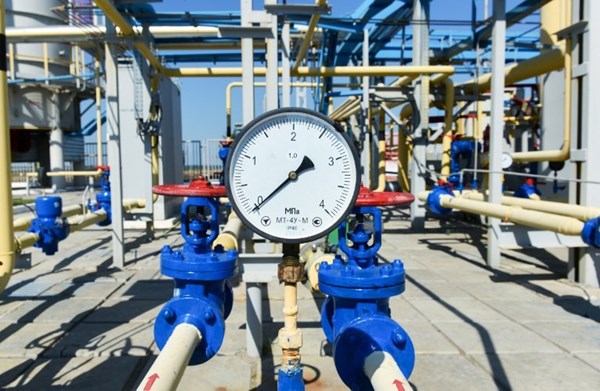Russia agrees to transit gas through Ukraine in exchange for release of seized Gazprom assets
Russia is prepared to renounce its long-standing gas dispute with Ukraine and resume gas transit to the EU on the 2014 level if all of Ukraine’s financial claims against Gazprom are withdrawn, said announced Russian Energy Minister Alexander Novak at the end of the trilateral gas negotiations in Berlin involving representatives from Kyiv and the EU.
Russia mentioned the possibility of renewing gas transit with the previous volumes one day after the Putin-Trump talks in Helsinki, where the US president implied that he did not plan to place sanctions on participants in the Nord Stream 2 project, which is designed to deprive Ukraine of gas transit revenue.
The transit contract which expires in 2019 can be extended or replaced with a new one, Novak noted.
“In the next five to ten years, the supply volumes to European consumers will be even greater than in 2017-2018. There may be an additional 10-15% growth. These additional volumes were discussed as one of the possible load sources for Ukraine’s gas transport system,” the minister observed.
The additional volume could equate to 17-25 billion cubic meters per year, he clarified. As a result, last year’s 93.4 billion cubic meter transit volume would grow to 110-115 billion, which corresponds to the level set out in the current contract between Gazprom and Naftogaz (110 billion).
The Arbitration Institute of the Stockholm Chamber of Commerce fined Gazprom $4.6 billion for a nearly 50% shortfall in gas transit volumes (67 billion cubic meters in 2015). Gazprom’s assets were subsequently seized in Switzerland and the UK, and the shares of Nord Stream AG and Nord Stream 2 AG were frozen.
Russia’s condition is the withdrawal of these claims, Novak said.
Russia would be satisfied with a voluntary termination of the property seizure or a decision by the arbitration court in favor of Gazprom, he clarified. The first option would be “optimal with respect to the time frame”, but the second option would also be “constructive”.
“We need to settle all our controversies before we begin to implement a new stage of interactions, because these are commercial contracts, which are realized primarily by commercial organizations. That’s why they have to be mutually beneficial, and the conditions must be profitable for both the suppliers and the consumers, as well as whoever provides the service of transiting gas to European consumers,” Novak emphasized.
The Russian diplomat noted, however, that at the negotiations on Tuesday, the parties merely exchanged opinions, and did not aim to make any concrete decisions on any particular issue.
